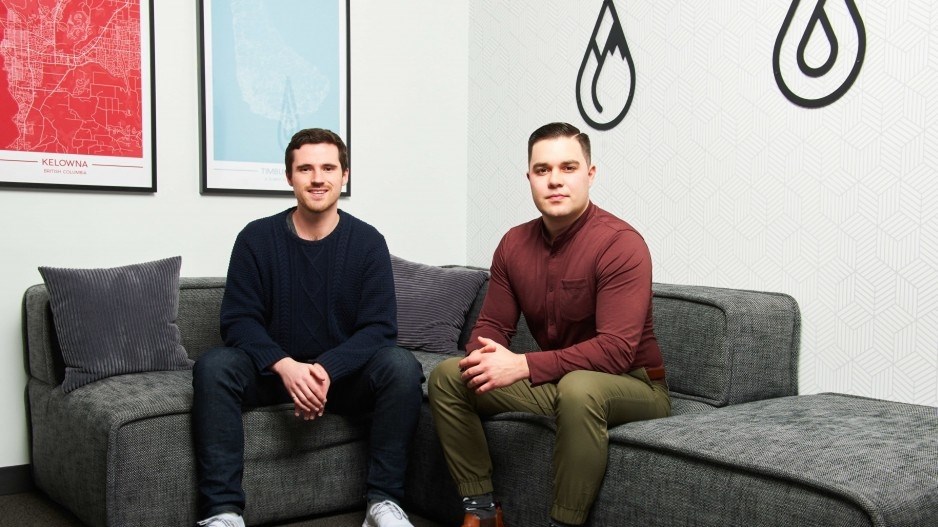A Â鶹´«Ã½Ó³»firm is aiming to revamp the residential mortgage landscape in North America, but the high down payment required would make it unworkable for most homebuyers, a mortgage expert says.
Fraction Technologies Inc. revealed Feb. 10 it’s raised $289 million in a mix of equity and debt financing from Primetime Partners, Panache Ventures and Impression Ventures among others.
The company has developed a platform whereby customers take out loans with interest rates tied to the appreciation of their home’s value. It is designed primarily for existing homeowners who wish to refinance.
There would be no monthly mortgage payments as required under conventional mortgage loans.
The $289 million raised by Fraction is supporting those loans.
“For us, it's really about how can we make a difference in homeowners’ lives. We put the homeowner first, not the banks,” CEO and co-founder Hayden James told BIV.
Instead of monthly rates, the interest rate is payable upon the sale of the home.
If, for instance, a home appreciates an average of 5 per cent over a five-year term, that then becomes the effective rate.
If a home depreciates in value, Fraction charges a minimum rate of 3.49 per cent.
For homes that appreciate significantly — a trend Vancouverites can attest to — Fraction charges a maximum rate of 7.99 per cent.
The funds can also be used to invest in rental property, according to the company.
There is a caveat on the scheme, however, for anyone who wants to use the program for a home purchase: a homebuyer must be able to afford a 60 per cent down payment, compared to a minimum of from 5 per cent to 20 per cent in the conventional mortgage market.
According to the Fraction website, “If you have 60 per cent down on a home, you can work with Fraction to purchase the home with no monthly payments.”
On the typical home in Metro Vancouver, now priced at $1.1 million, the buyer would be required to put down $660,000 cash to secure Fraction financing.
“This looks crazy,” said Peter Kinch, a Port Moody-based mortgage broker and consultant with Mortgage Alliance, who has been in the industry for more than 20 years. ”Unless I’m missing something.”
Aside from the high down payment, Kinch noted that the scheme would only work in markets with strong asset appreciation
“It may not fly in Calgary,” he said.
As well, for homeowners who experience negative appreciation the interest rate charged on funding is about three times higher than the current five-year mortgage rate, he added.
The strategy is aimed at existing home owners with substantial equity who want to refinance without making monthly payments. But, as Kinch noted, conventional reverse mortgages are available at similar lending rates.
The genesis of the company emerged from time James and co-founder Josh Baker spent working on a separate technology product for a real estate brokerage.
“We had seen our friends and family had to sell their homes in order to access their home equity. And then on the other side we got to see a lot of investors that were looking to buy property but then not rent it out, which is kind of the classic Â鶹´«Ã½Ó³»story,” James said.
The pair briefly explored the idea of whether they could bridge that gap and find a way for people to sell shares in their homes.
“We came to the conclusion pretty quickly it was a pretty bad idea,” James recalled, explaining why the company shifted its focus.
The company has grown from three to 10 employees since December and James hopes to expand that headcount to 30 employees by the end of the year.
Most of Fraction’s employees are based in Vancouver, however, the company maintains an office in northern California where co-founder Rayan Rafay is based.
Fraction’s platform is currently available to homeowners in B.C. and Ontario.
“The Fraction Appreciation Mortgage is ideal for older adults eager to age in place but faced with insufficient retirement funds to cover the cost of their healthcare and other expenses,” according to Abby Miller Levy, managing partner of Primetime Partners, which is among the Fraction backers.
As Kinch noted, it would likely not be of any help to younger buyers trying to get into the market because of the risks and the substantial equity required for the financing.


